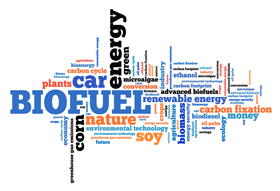
Foam News - Eco Foam

At eFoam, we are keen to remain up to date with the latest foam innovations being discovered in the sector. More often than not, new sustainability and environmental goals guide these developments. We at eFoam are proud to say that all of our foams are non-toxic and are produced without the use of harmful chemicals. All of our foam offcuts are also repurposed.
One of the fantastic innovations we have seen is from researchers at the US National Renewable Energy Laboratory. Expert teams have recently announced the creation of a new type of polyurethane foam that has been made from a combination of flax, fat and algae. Unlike in the UK where foam production is safe, sustainable and responsible, toxic foams are still a cause for concern around the world. This is where this innovation can really make a difference.
It is common knowledge that polyurethane foam is used in a significant number of everyday items, including clothing, shoes, furniture and beauty products. Given its versatility, there are only a few areas of our lives that are not in contact with polyurethane. According to Phil Pienkos, a recently-retired chemist from the National Renewable Energy Laboratory (NREL), the industry is keen to rethink how polyurethane foam can be produced on a global scale.

Through a specialist process using non-toxic resources such as waste grease, algae and linseed oil, a renewable polyurethane foam product has been produced. Whereas traditional polyurethane is made via a chemical process using polyols and isocyanates, scientists are expressing an interest in new ways to synthesise foam using bio-based resources. Researchers at the NREL decided to challenge this predicament head-on by studying polyurethane chemistry and its potential.
This ground-breaking idea from the NREL was encouraged by an unrelated laboratory problem concerned with lowering the cost of algae biofuels. In the space of ‘bio-refining’, waste products from this process – including lipids and amino acids – became ingredients for the renewable and non-toxic polyurethane foam. NREL colleague Tao Dong, an expert in chemical engineering, explained that creating polyurethane foam using non-traditional materials was nothing new. Instead, the key challenge that the NREL have managed to solve concerns the speeding up of the chemical reaction to compete with the speed at which conventional polyurethane foam is developed.
NREL has led the way in proving that non-toxic and environmentally-friendly foam products can become the norm for the global foam sector. By replacing petroleum-based polyols with select natural components, a viable and renewable polyurethane fam can be created just as fast. Given its success to date, colleagues at the NREL have now partnered with many companies who have contributed resources, investment and research partnerships to push for the commercialisation of this ‘greener’ polyurethane.
One key highlight of the development from NREL is the customisable nature of this new polyurethane foam. For example, the chemistry involved has been described as ‘tuneable’, enabling the polymers to be tweaked to make other foam types like memory foam, as well as coatings and adhesives.
We are thrilled to see such an interesting and exciting development take place in the foam sector, and we praise its environmental benefits! Please take a read of our dedicated blog to learn more about our environmental practices at eFoam.

